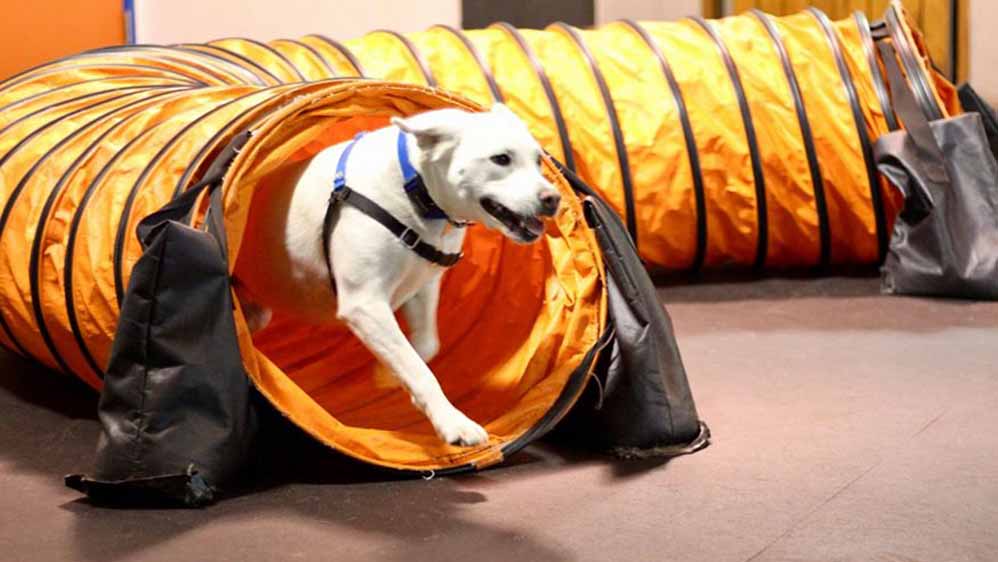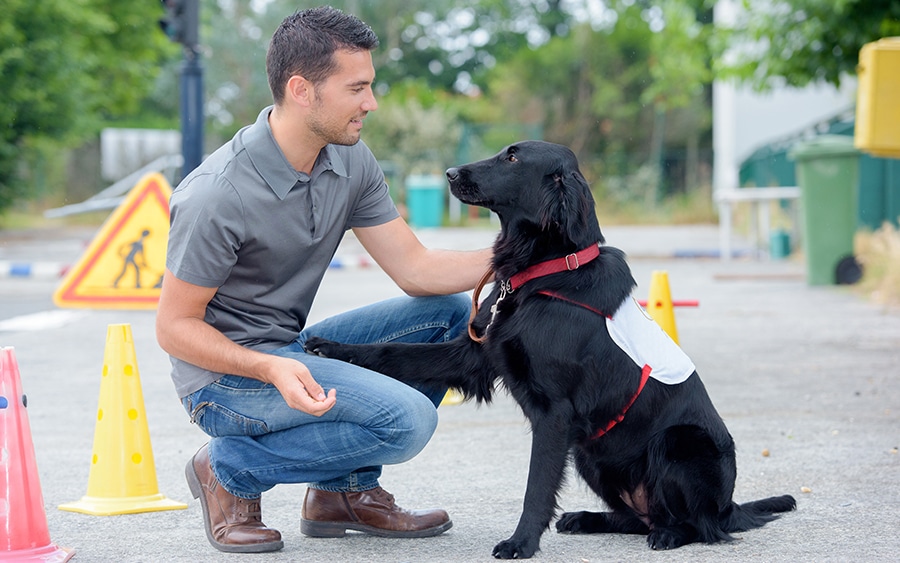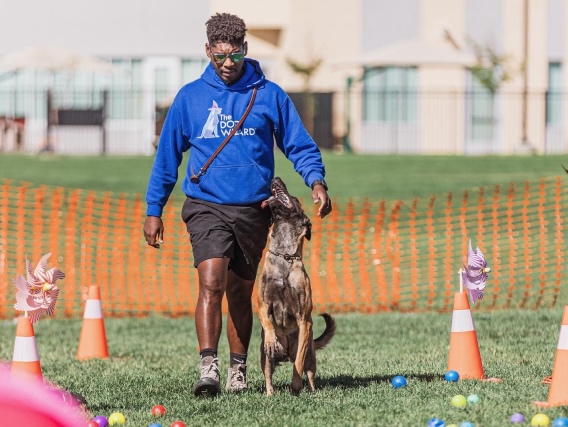Raise Your Abilities with Local Dog Training Charlotte Programs
Raise Your Abilities with Local Dog Training Charlotte Programs
Blog Article
Unlock Your Dog's Potential: Proven Canine Training Techniques for Success
Effective pet training is a nuanced process that hinges on recognizing canine habits and employing medically backed strategies. By including favorable support, establishing clear commands, and prioritizing socializing, pet dog proprietors can grow an efficient partnership with their animals.
Comprehending Canine Actions
Comprehending dog actions is crucial for efficient training and promoting a favorable partnership between pet dogs and their proprietors. A comprehensive grasp of canine body movement, vocalizations, and social interactions is vital for recognizing their emotions and requirements. Canines connect mainly via non-verbal signs; as an example, a wagging tail may indicate excitement, while pinned ears can indicate fear or submission.

Additionally, environmental elements play a considerable role fit a pet dog's behavior. Adjustments in regular, brand-new surroundings, or the presence of unknown people can bring about stress and anxiety or anxiety in pets. Acknowledging these triggers enables proprietors to mitigate negative responses and develop appropriate training strategies.
Eventually, a deep understanding of pet behavior lays the structure for successful training techniques, improving both habits and the total bond between the pet dog and its owner. dog training charlotte. This expertise is crucial for cultivating a well-adjusted, pleased canine buddy
Favorable Support Strategies
Efficient training counts heavily on positive support strategies, which have been revealed to yield considerable lead to forming preferred behaviors in canines. This method entails compensating a dog for displaying details behaviors, therefore enhancing the likelihood that these behaviors will certainly be repeated. Rewards can take numerous forms, consisting of deals with, praise, toys, or playtime, relying on what encourages the individual canine.

It is important to slowly eliminate rewards as the pet dog discovers the behavior, transitioning to recurring support. This strategy keeps the actions gradually while preventing dependency on consistent incentives. By concentrating on positive support, instructors can grow a relying on partnership with their canines, promoting a participating and healthy training atmosphere that boosts general obedience and performance.
Developing Consistent Commands
A fundamental element of effective dog training is the establishment of regular commands. Consistency in commands is vital for effective interaction between the trainer and the pet. When commands are consistent, pets learn to link specific words with preferred best service dog training near me behaviors, which speeds up the training procedure and improves understanding.
To develop regular commands, it is essential that all relative utilize the exact same terminology and gestures. For example, if a single person utilizes "sit" while one more claims "sit down," it can produce confusion for the pet dog. Select clear, distinctive words for commands and make certain every person involved in the pet dog's training sticks to these selections.
In addition, repeating is key. Strengthen commands through constant practice, making sure that the dog receives ample opportunities to react appropriately. When a canine efficiently follows a command, instant positive reinforcement needs to follow. This might be in the kind of treats, appreciation, or play, solidifying the connection between the command and the activity.
Last but not least, be individual. Developing constant commands requires time and initiative. With commitment and clarity, you will aid your pet create a solid understanding of expectations, ultimately causing a well-behaved companion.
Socializing and Direct Exposure
Interacting socially a canine is crucial for fostering a well-adjusted and confident friend. This process includes subjecting your pet dog to a variety of environments, people, and various other pets to create their social abilities and versatility. Early socialization, preferably between the ages of 3 to fourteen weeks, is crucial, as it lays the foundation for a pet's future actions.
During socialization, aim to provide favorable experiences in various settings, such as parks, busy streets, and homes with various other family pets. Introduce your pet to numerous stimulations, including noises, sights, and smells, ensuring that each encounter is gratifying. This exposure assists alleviate fear and stress and anxiety, leading the way for a much more durable pet dog.
Involving in regulated group play sessions with various other pet dogs can additionally enhance social abilities, teaching your animal appropriate interactions and boundaries. Focusing on socializing will significantly contribute to your pet's overall joy and behavior throughout their life.
Overcoming Common Educating Difficulties

Canines might struggle to focus in strange or busy settings. Slowly desensitize your canine to disturbances by beginning training in a quiet atmosphere and gradually presenting even more stimulations as they become skillful.
In addition, behavioral problems like jumping or too much barking can become irritating. Address these by instructing alternative habits, such as resting comfortably when welcoming visitors. Uniformity and persistence are essential; strengthen desired get more behaviors consistently and stay clear of abuse, which can lead to confusion.
Last but not least, acknowledge that each pet is distinct, and training timelines may differ. Tailor your technique to your dog's private requirements, and seek expert assistance if needed. With determination and the right methods, conquering these difficulties can result in a trained, pleased canine companion.
Verdict
In final thought, opening a canine's potential requires a comprehensive strategy that includes an understanding of canine habits, the application of positive support techniques, and the establishment of regular commands. Early socialization and direct exposure to diverse atmospheres further improve a pet's adaptability and self-confidence. By dealing with common training challenges with tailored strategies and patience, a cooperative and harmonious relationship between canine and trainer can be promoted, eventually causing a mannerly buddy qualified of flourishing in different scenarios.
Efficient pet training is a nuanced procedure that hinges on comprehending canine actions and using medically backed approaches.Recognizing dog habits is important for reliable training and fostering a positive connection in dog learning buttons between pets and their proprietors.Efficient training depends heavily on positive reinforcement methods, which have been shown to yield considerable results in forming preferred habits in canines. When commands are uniform, pet dogs discover to associate particular words with desired habits, which increases the training process and enhances understanding.
In final thought, unlocking a pet's potential demands an extensive method that includes an understanding of canine habits, the application of favorable reinforcement strategies, and the establishment of regular commands.
Report this page